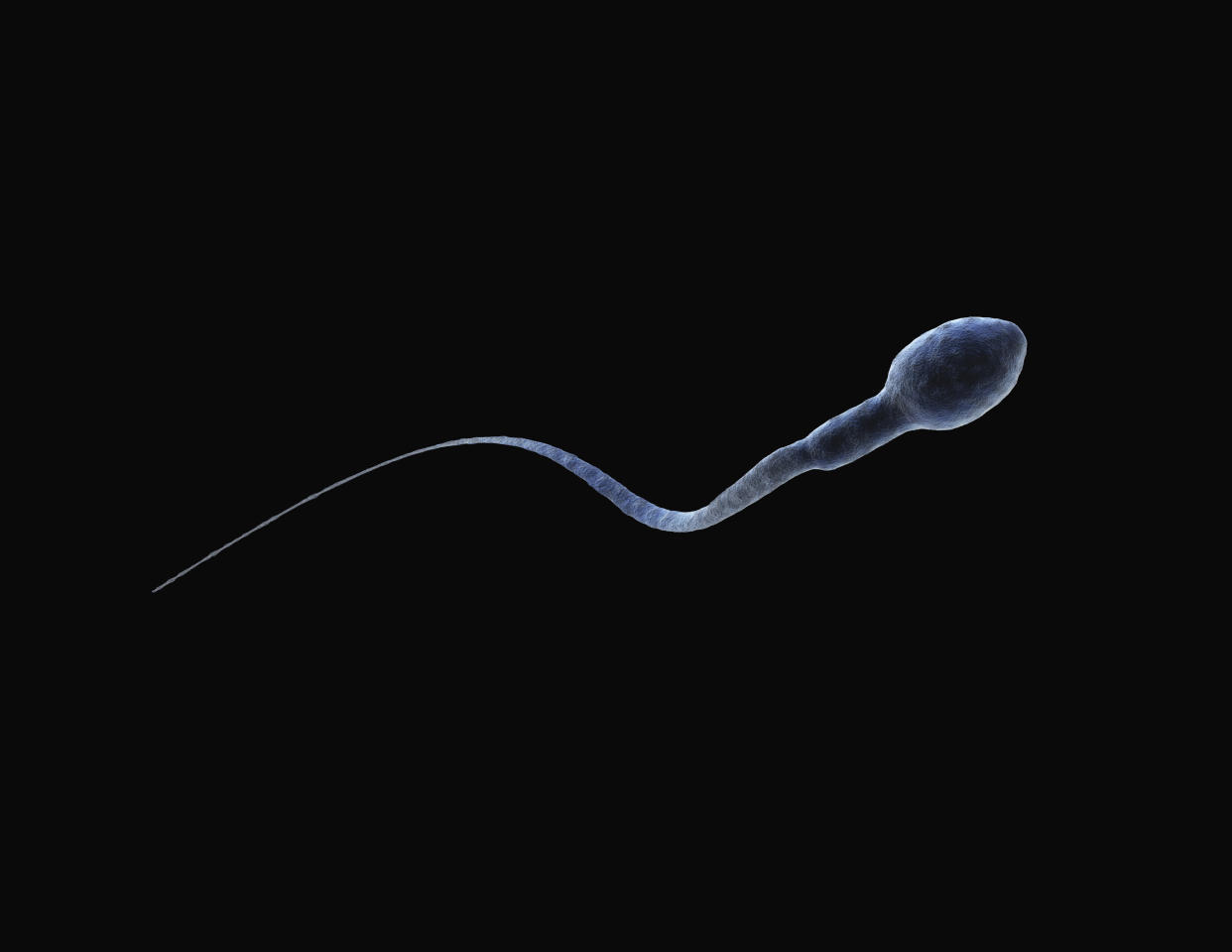Sperm counts have been declining for decades. Are microplastics partly to blame?

There has been a lot of talk in the past few years about global declines in sperm counts. Recent research found that sperm counts dropped by 1.2% per year on average from 1973 to 2018, with scientists noting that the problem seems to be getting worse. Now, new research suggests there may be a possible hidden culprit behind this: microplastics.
The study, which was published in the journal Toxicological Sciences, analyzed postmortem tissue from 23 human testicles and 47 dog testicles from pets who had been neutered. Researchers dissolved the tissue samples and analyzed the plastic that remained. They discovered that the human testes had a concentration of microplastics of 330 micrograms per gram of tissue, which was significantly higher than that of the dogs (123 micrograms per gram of tissue).
The most commonly detected microplastics were polyethylene, which is used in plastic bottles and bags, and PVC, often found in piping, siding and health care tools.
This isn't the first time microplastics have been detected in human testicles: A small study from last year found microplastics in six human testes, as well as in 30 semen samples.
But what's behind this, and how concerned about it should people be? Doctors break it down.
How microplastics might impact fertility in men
It's important to get this out of the way up front: There's a lot researchers don't know about the impact of microplastics on fertility. We do know that male infertility leads to about half of all infertility cases. But whether microplastics is a factor just isn't known.
“At this point, we are still in the early stages of understanding the impact of microplastics on male fertility,” Dr. Xiaozhong Yu, a co-author of the study and professor and environmental health specialist at the University of New Mexico, tells Yahoo Life.
Dr. Alex Robles, an infertility specialist at Columbia University Fertility Center, stresses that there is no solid evidence that microplastics will interfere with male fertility. However, he tells Yahoo Life that “it's possible that microplastics can have a direct toxic effect on the sperm themselves.” This effect, he points out, has been detected with another microplastic, bisphenol A (BPA), which can be found in food storage containers, water bottles and some metal cans.
“It is very possible that microplastics could impact your testosterone and fertility. You have to have good testosterone to create sperm,” Dr. Justin Dubin, a urologist and men’s health specialist with Memorial Healthcare System, tells Yahoo Life. Dubin stresses that this is “speculative” at this point but adds, “If you have microplastics somewhere they shouldn't be, it's certainly something to think about.”
Yu agrees. “While the exact mechanisms are not yet clear, it is hypothesized that microplastics could affect fertility by causing physical damage to the blood-testes barrier or by disrupting endocrine functions,” he says. “Microplastics might carry harmful chemicals that may interfere with hormonal balance, potentially affecting sperm production and quality.”
But experts also acknowledge that this could end up not being a huge deal. “Simply saying you can find microplastics in the testicles is not scary,” Dr. Pietro E. Bortoletto, director of reproductive surgery at Boston IVF, tells Yahoo Life. “We have microplastics in every tissue in the modern era. Does it have any health impacts? The answer is probably yes — but we don't know.”
Is this why sperm counts have been declining?
It's not clear at this point, and there's also some controversy about whether sperm counts actually have been declining given that it's a tricky thing to measure. However, severalstudies have found a drop in sperm counts over time. Yu says that there are likely several factors behind detectably lower sperm counts, including lifestyle changes, environmental pollution and health conditions.
Robles stresses that certain elements are known to impact sperm count, including:
Obesity: “Obesity can lead to hormonal imbalances, which impact the hormones responsible for sperm production,” he explains.
Pollution: “Toxins in the environment, such as tobacco, marijuana and vaping, can cause direct oxidative damage to the sperm themselves,” Robles says.
Genetics: “Some men are born with genetic conditions that can negatively impact sperm production or quality,” Robles says.
Health conditions such as poorly controlled diabetes and hypertension — which are surging in the U.S. and around the world — can also impact sperm quality, Bortoletto says. “Probably the part that we know the least about is environmental causes, like having a laptop sit on a lap for hours on end and having microplastics in our environment,” he says. “People are concerned about these, but we don't have tons of data on what they mean yet.”
If you're concerned about microplastics and their potential impact on your fertility, Dubin recommends doing what you can to reduce your exposure. “Read ingredients, choose personal care products that are phthalate-free, don't microwave food in plastic containers and avoid nonstick cookware,” he says. Lowering your exposure may not magically improve your fertility, but it could potentially lower the amount of microplastics in your body.
“This study confirms that even if microplastics in testicles don't do anything, we're still getting exposed to them at a high level,” Dubin says.
Ultimately, Robles recommends that couples struggling to conceive visit a reproductive endocrinologist and infertility specialist. “There are several tests we can do to uncover if there is any underlying dysfunction in either the male or the female partner that is associated with decreased fertility,” he says.
